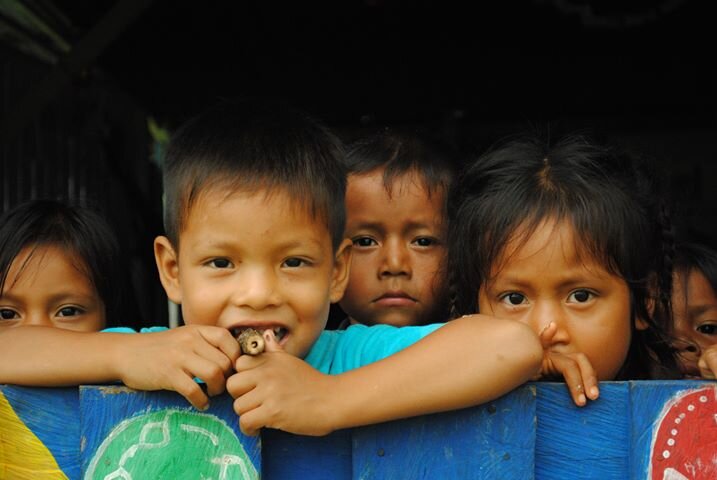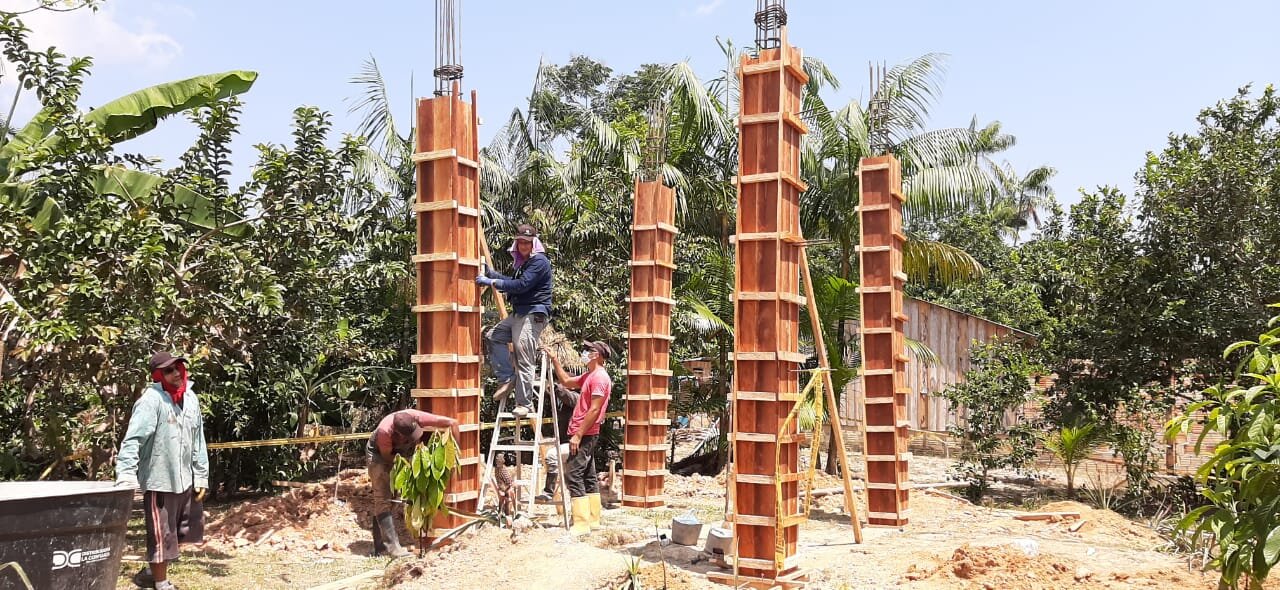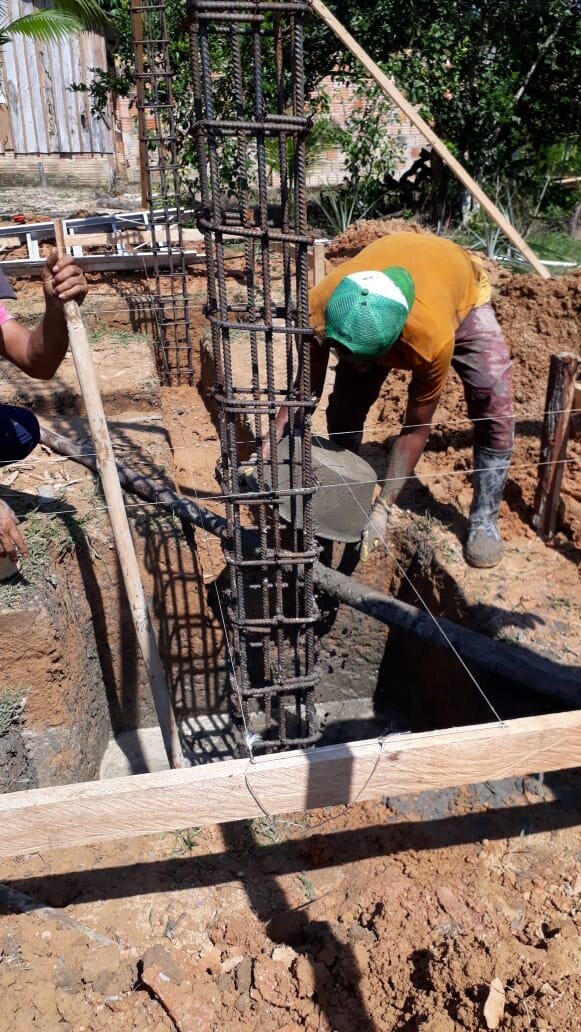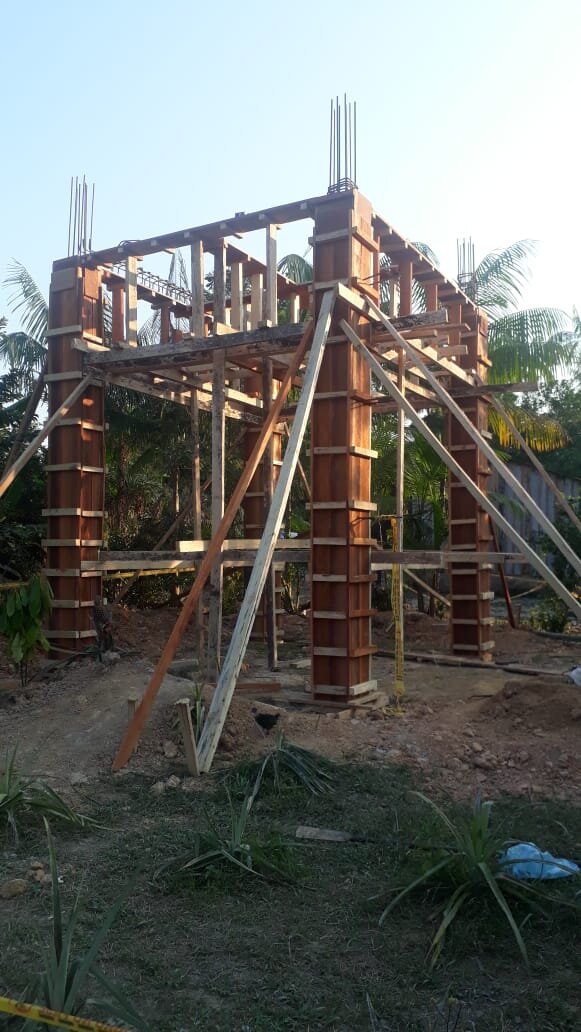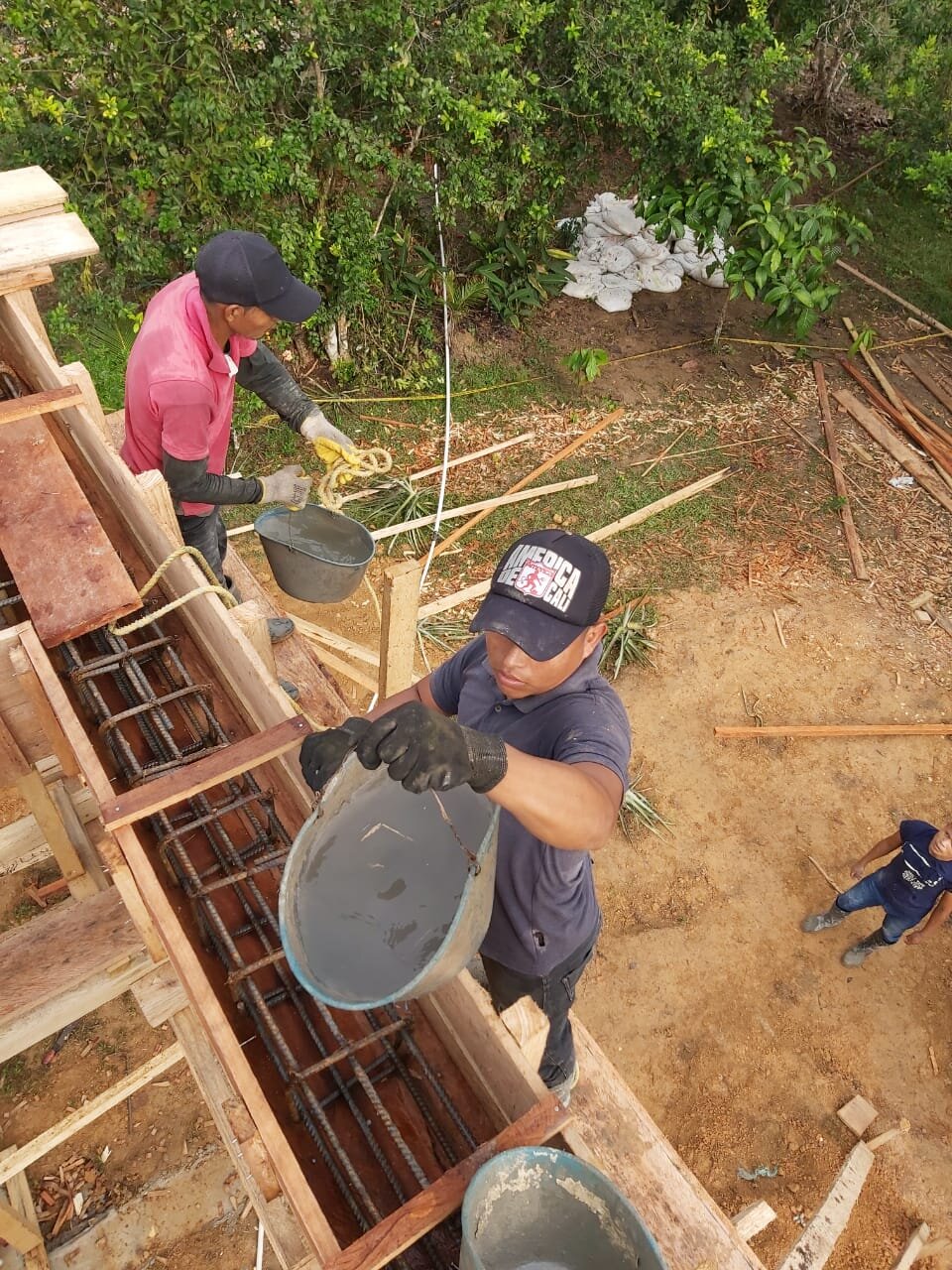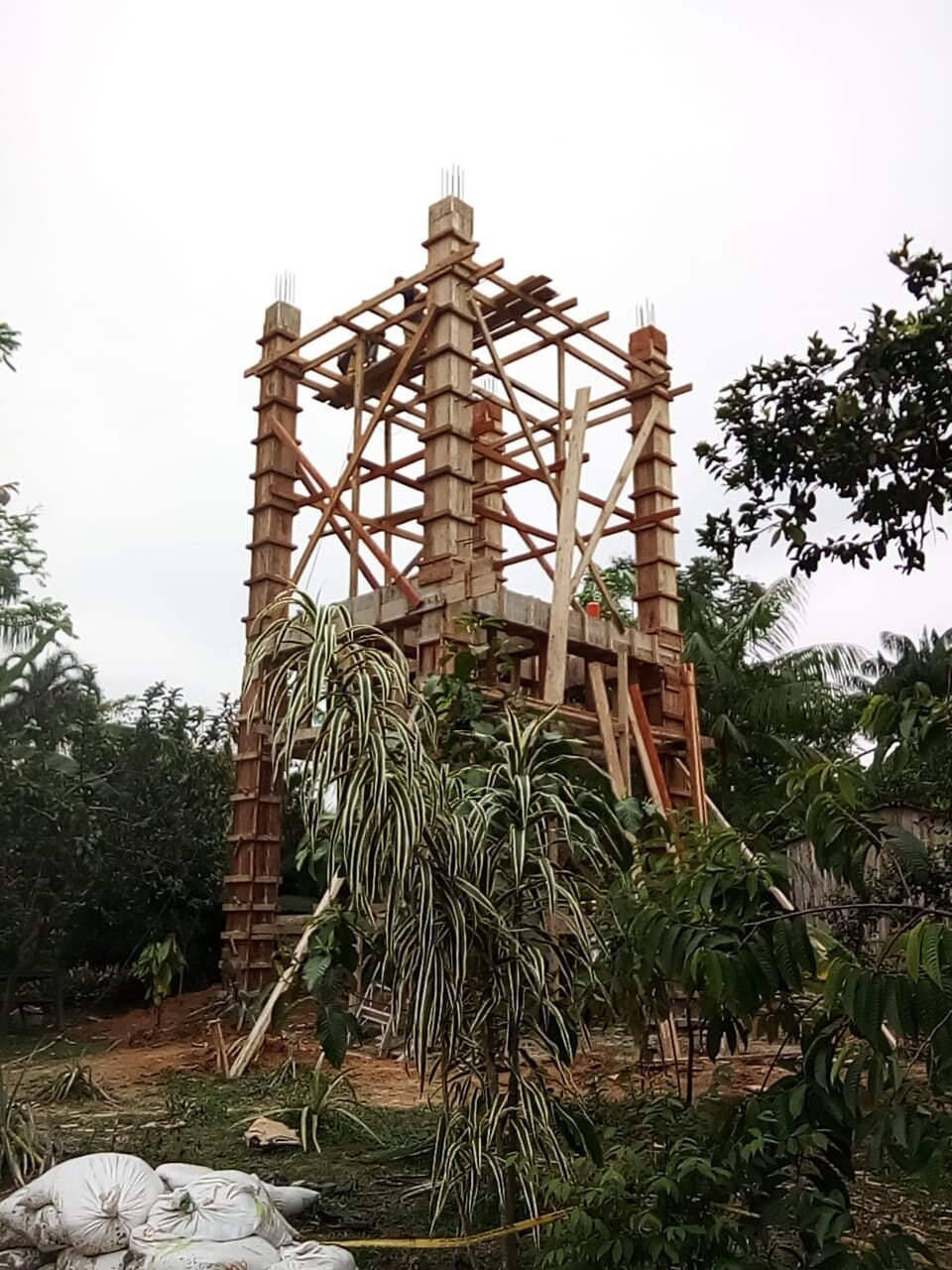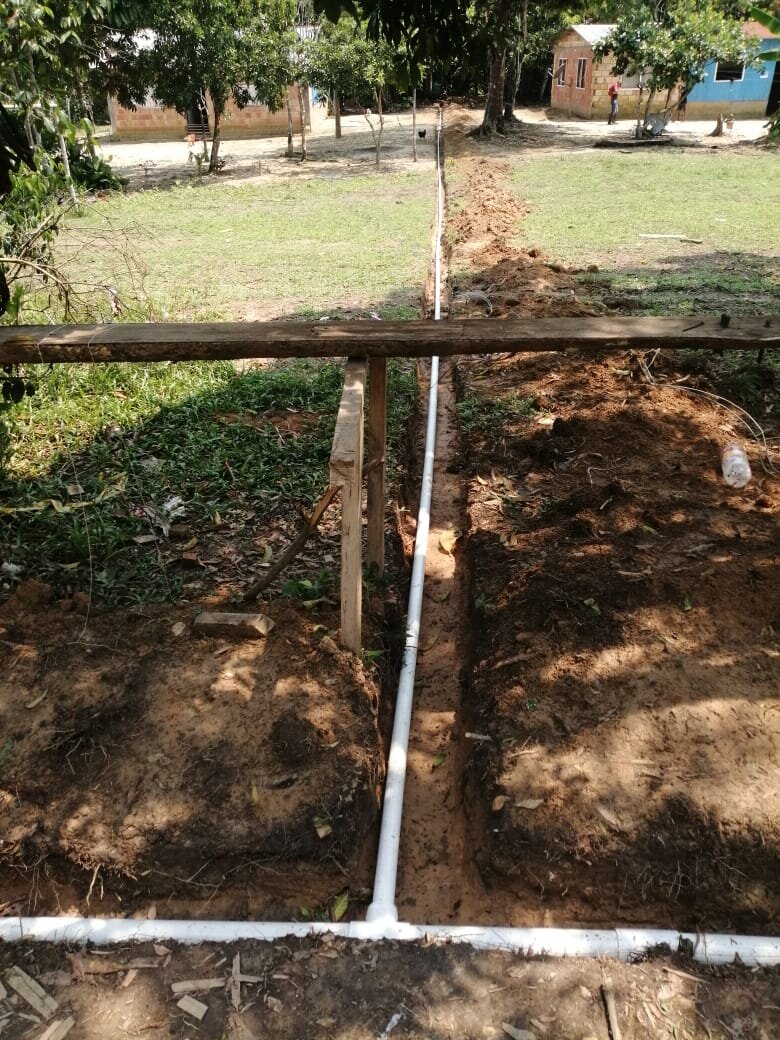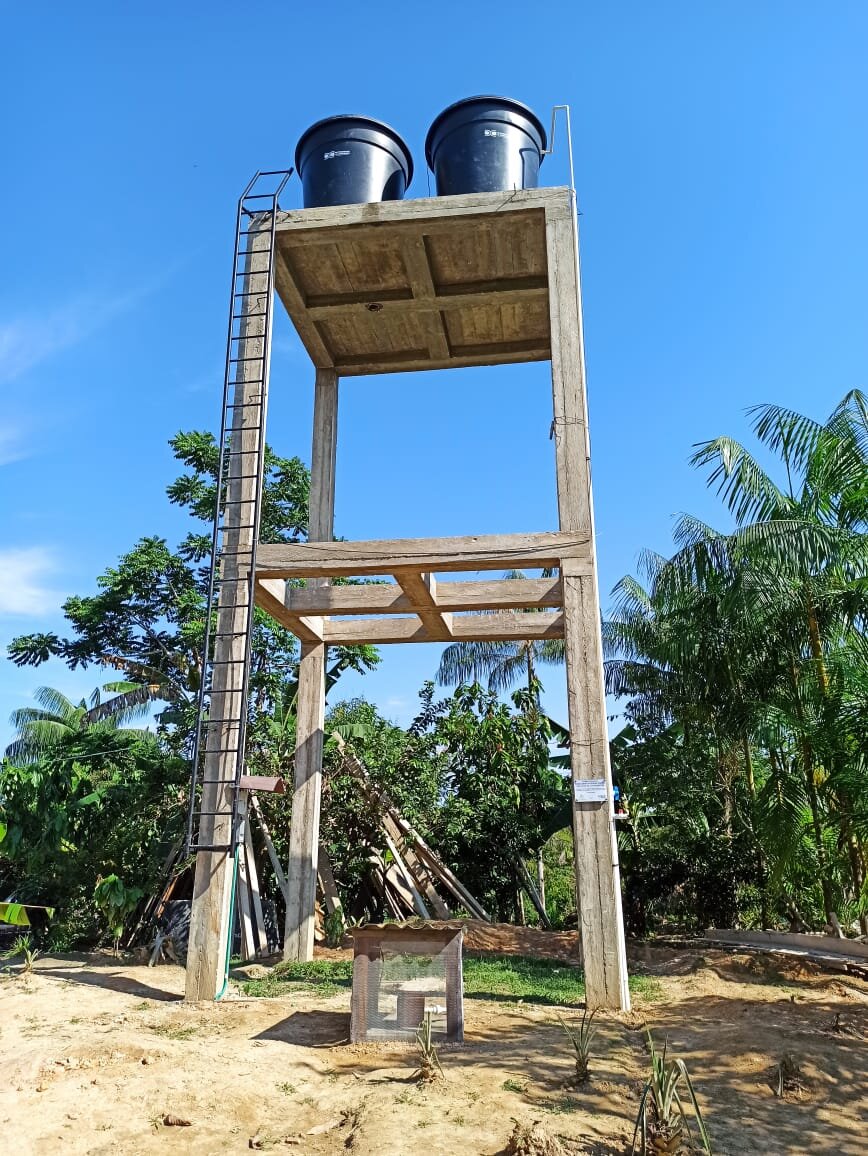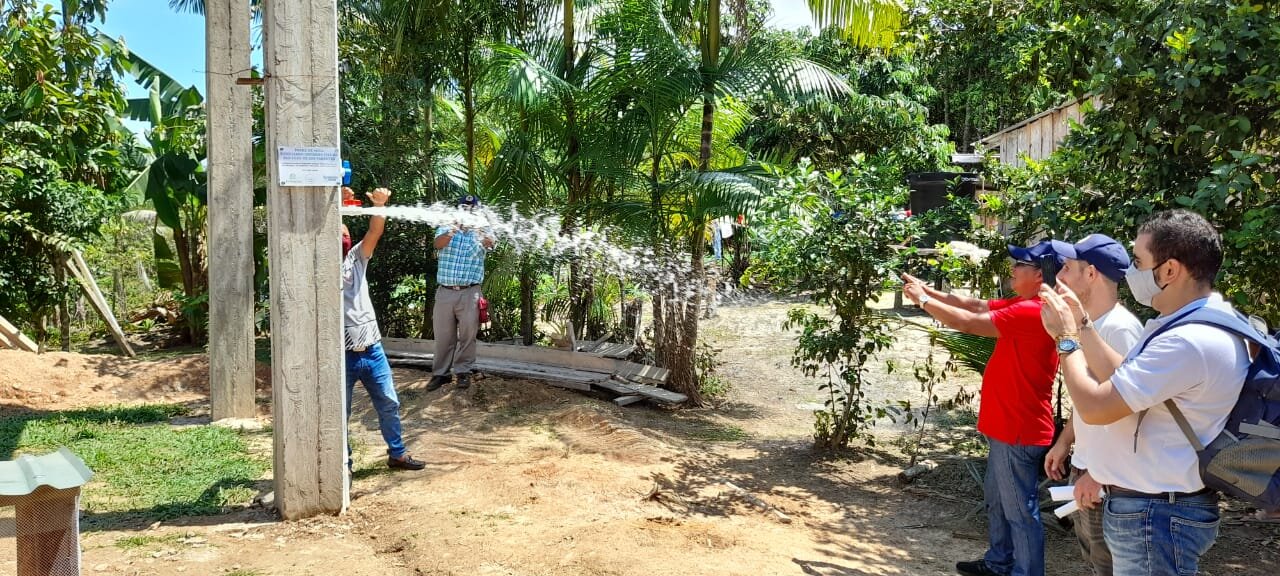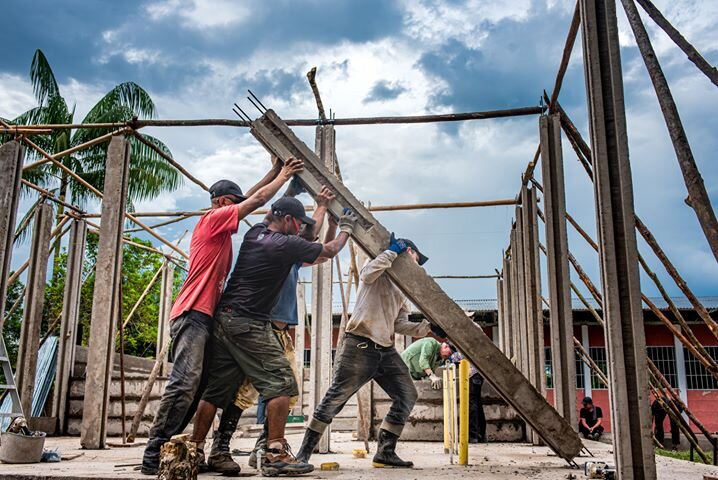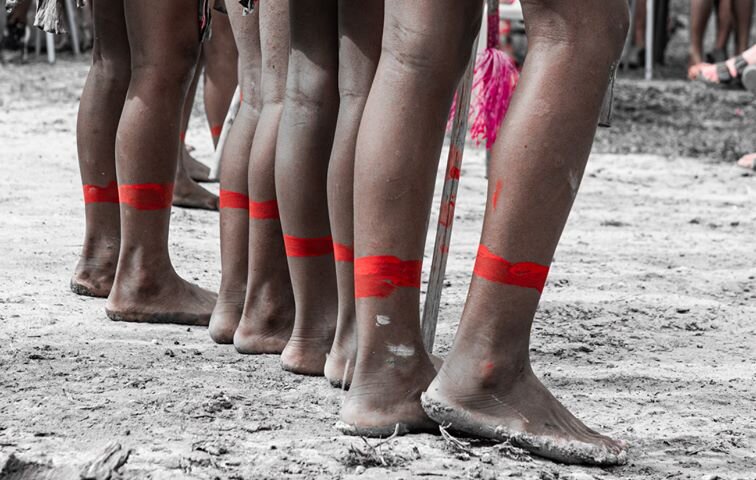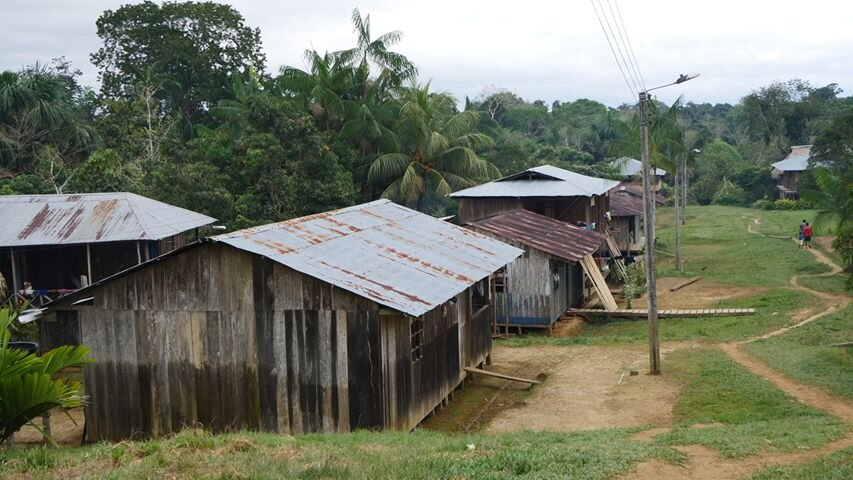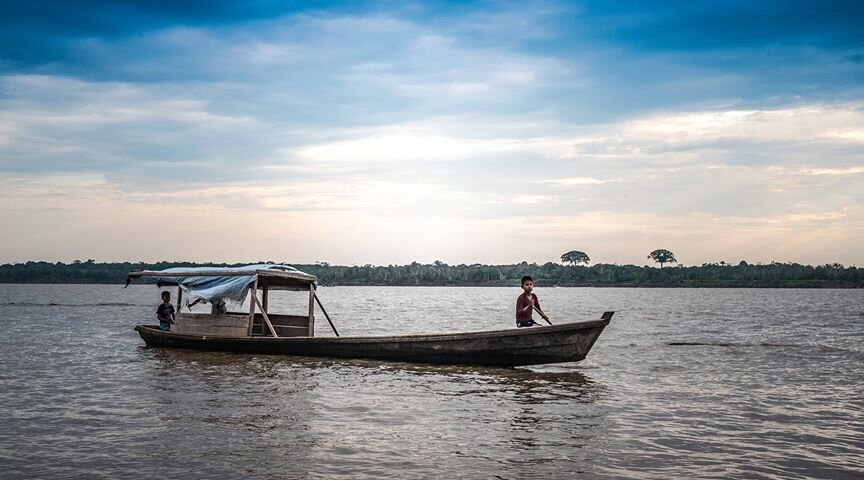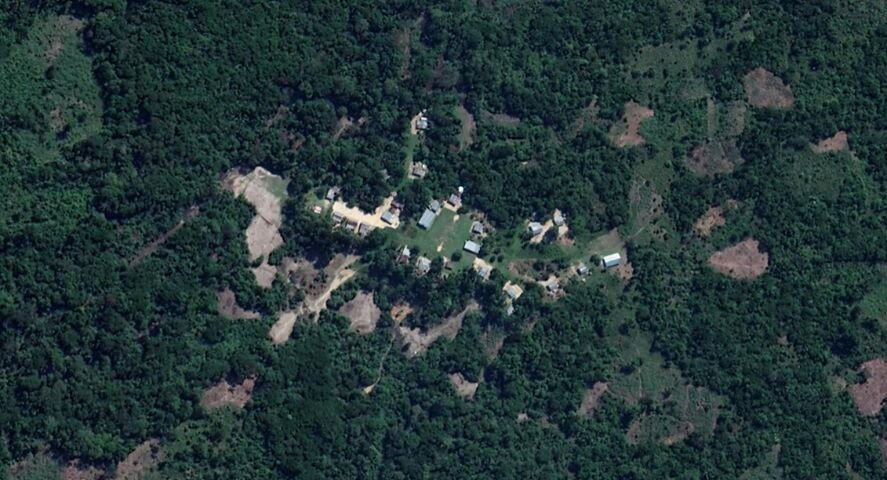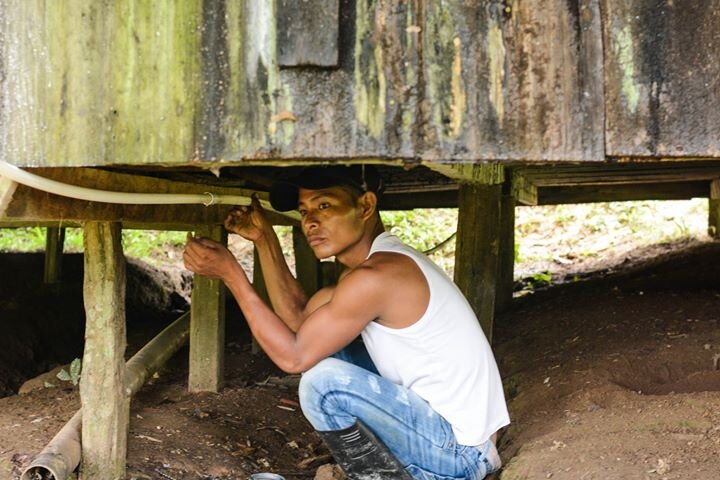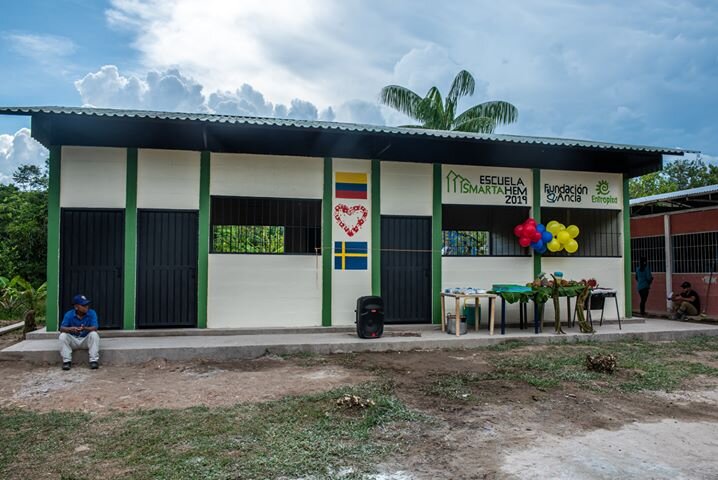Water Aqueduct Completion
in the Indigenous Tikuna Community of
San Juan de Los Parentes
October 9, 2020
1064 Givers is partnering up with Fundación Entropika to help improve the access to clean drinking water and basic sanitation to the Amazonian indigenous community in San Juan de Los Parentes.
San Juan de Los Parentes is a Tikuna indigenous community located in the Southern part of the Colombian Amazon, where 120 people live; it is considered to be a “small-sized” community. From Leticia, capital of the Colombian Amazon and home to roughly 48.000 people, it takes about 25 minutes by boat or 1h30 on foot to reach the community. Tikuna people are widely distributed along the Amazon River in Peru, Colombia and Brazil. Their economy relies largely on land cultivation of small slash-and-burn patches (called “chagras”), fishing, gathering, trade and, more recently, tourism.
We are proud of the results from the completion of this project.
Access to water water and sanitation improves the lives of students within the community.
The local entity that led the construction and implementation of the water tower is “Fundación Entropika”, a grassroots NGO. The main goal of Entropika is to contribute to the conservation of Amazonian ecosystems and cultures at the tri-border area between Colombia, Brazil and Peru.
In order to achieve this, Entropika works closely with local stakeholders and target groups through community-led projects, educational and social programs, capacity building, the enforcement of environmental and animal welfare laws, cooperative research, the implementation of sustainable economic alternatives and the improvement of local living standards. Entropika works in the following areas:
Conservation and environmental law enforcement
Improvement of living standards of Amazonian communities
Access to clean drinking water and basic sanitation
Protection of domestic animals
Responsible waste management
Access to education
In order to improve access to clean drinking water and basic sanitation, as well as improve access to education, a 12 meters high concrete tower was built, together with the perforation of an artesian well. The system is operated by an electric water pump and the tower is connected to each household and the school of the community of San Juan de Los Parentes. The community contributed to roughly 20% of the inverted funds; this is important in order for the community to value and take responsibility of the donation. Monthly follow-up of the system was done by a local NGO where then a community water master was elected, he is now in charge of this operation and maintenance. To keep the community engaged each house hold is required to pay $1 USD (4,974.21 Colombian Peso) each month to help support the water master salary who is in charge of the operation of the electric water pump and continue to have access to unlimited water. With this successful project the community now is able to have running water toilets and showers. This is an incredible achievement to increase hygiene and health in the community. In order to improve access to clean drinking water and basic sanitation, as well as improve access to education, a 12 meters high concrete tower will be built, together with the perforation of an artesian well. The system will be operated by an electric water pump and the tower will be connected to each household and the school of the community of San Juan de Los Parentes. The community will contribute to roughly 50% of the inverted funds; this is important in order for the community to value and take responsibility of the donation. Monthly follow-up of the system will be done by a local NGO and a community water master will be elected, who will be in charge of its operation and maintenance.
A member of Fundacion Entropika, the local organization we partnered with to help implement the water tower.
Each house in the community now has direct access to clean water from the tower.
In February of 2019, Entropika installed water filters in each household of San Juan de Los Parentes to improve access to clean drinking water. The water filters make use of any rainwater that the household receives . Unfortunately, rainwater is not enough to supply for people’s basic water needs. In October of 2019, Entropika constructed a school refectory (including a kitchen and bathrooms) to improve education infrastructure in the community.
Members of the community helping carry supplies to construct the water tower for their homes.
More about the Amazon Community: The Colombian Amazon, among the world’s most diverse ecosystems, is currently characterized by interacting, accelerating vicious circles that are increasingly impoverishing both humans and the natural world. This apparent paradox results from a long history of natural resource extraction driven by global demand with negligible returns for the regional economy. During the early 1900s, the Tikunas in Colombia suffered profound changes due to their involvement in extractive economies such as rubber exploitation, skin trade (e.g. big cats, caiman and otter skins) and the massive exploitation of different tortoise species for international markets, drastically affecting traditional use of natural resources. During the 1960s, the high levels of wildlife trade (mainly primates for the biomedical research market in the US) drastically affected Tikunas’ traditional use of resources and commercial hunting became the main economic income in the area. In the 1980s, the coca boom of affected Tikuna society negatively as access to money became common; traditional activities such as agriculture were abandoned,
bringing alcoholism, prostitution, corruption of indigenous authorities, and scarcity of cultivated food, among other problems. Because of their participation in extractive economies and the loss of cultural beliefs and taboos, there has been a clear disruption between Tikuna people and their traditional relationship with nature. In turn, this has tainted the Tikuna people’s view of conservation and social projects, hindering attempts towards cooperation with governmental and non-governmental organizations regarding the management of natural resources and the improvement of local living standards. Today, these communities do not have access to basic services (ex. potable water, sanitation, etc.), good education or financial opportunities, and are often forgotten and marginalized. Improving access to clean drinking water and basic sanitation is one of the many crucial steps to reducing poverty and inequality in the area, which are indispensable in reducing pressure on the local ecosystem and securing human rights


